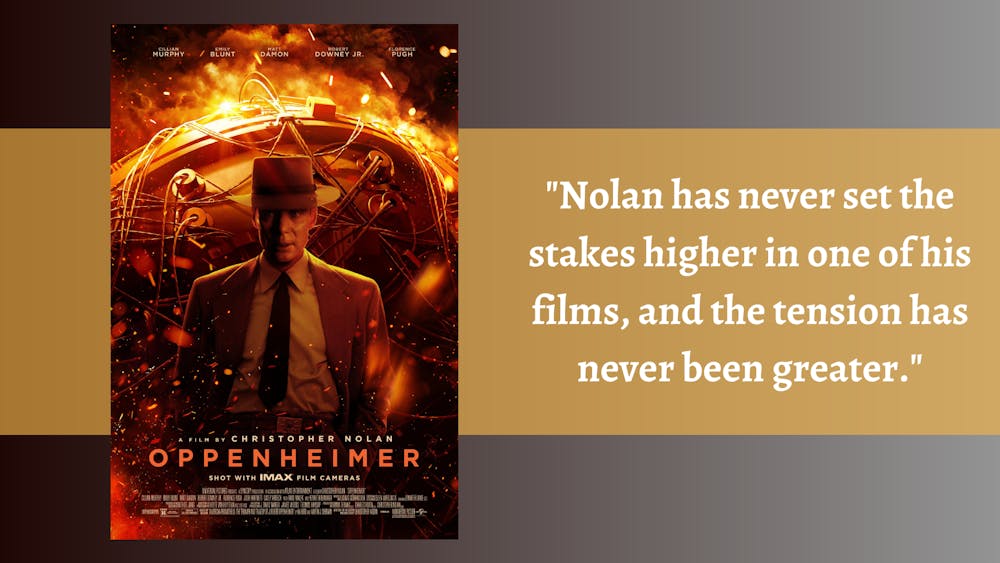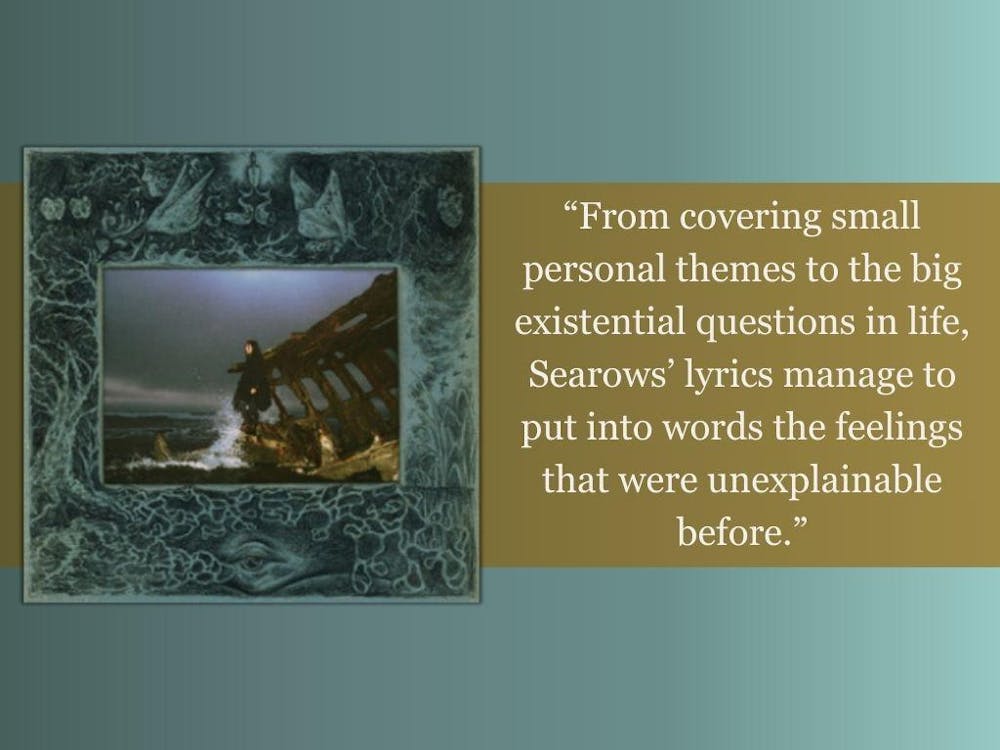Before July 22, I liked exactly two biopics: “The Eyes of Tammy Faye” and “Spencer,” which I’m not sure even counts as a biopic. It’s not a genre I gravitate toward, so my expectations going into the phenomenon that is “Barbenheimer” was that “Barbie” would be my favorite, and it wouldn’t be particularly close.
After a marathon of a day at the movies, “Barbie” did indeed emerge victorious, but I was blown away by “Oppenheimer” nonetheless.
“Oppenheimer,” directed by Christopher Nolan, follows the story of J. Robert Oppenheimer and the creation of the atomic bomb. The film unfolds in a dual narrative structure as Oppenheimer (Cillian Murphy) leads the Manhattan Project at Los Alamos in the 1940s and Lewis Strauss (Robert Downey Jr.) goes through a confirmation hearing for the position of U.S. Secretary of Commerce in 1959. The connective tissue between the two plotlines is a private 1954 hearing in a cramped room as the Atomic Energy Commission decides whether to renew Oppenheimer’s security clearance.
If that sounds like a lot of men talking in rooms, it is. Don’t make the mistake of thinking that means the film is boring, though.
Nolan has never set the stakes higher in one of his films, and the tension has never been greater. After all, the fate of the entire world hangs in the balance as Oppenheimer is blinded by discovery and his own ego.
Murphy shines as Oppenheimer throughout the movie. He transforms from an overconfident, idealistic physicist to a broken man crushed by guilt and anxiety in what’s sure to be an Oscar nomination if not a win for Best Actor at next year’s Academy Awards.
Parts of the script for “Oppenheimer” were written in first-person, a testament to Nolan’s dedication to telling the story from Oppie’s point of view. While Strauss’s confirmation hearing and the events surrounding it are shown in black and white, “objective” according to Nolan, the rest of the film is in “subjective” color.
It’s easy to criticize “Oppenheimer” for failing to adequately address the suffering of Japan and in particular the people of Hiroshima and Nagasaki following the attacks. That’s the point of the film, though. To Oppenheimer himself, who never explicitly apologized for the use of nuclear weapons on Japan, the threat he unleashed on the world was both abstract and existential, a chain reaction to destroy the world at large and not a singular event.
The horror of “Oppenheimer” is how little thought is given to Japan. At one point, a politician rules out Kyoto as a potential target because he and his wife had honeymooned there. Later, President Harry Truman calls Oppenheimer a crybaby for the guilt he feels over giving humanity the power to destroy itself.
Beyond the terror of nuclear warfare, “Oppenheimer” dedicates a surprisingly large amount of its runtime to dissecting McCarthyism and the Red Scare. The third act of the movie centers on Oppenheimer’s ties to the Communist Party and whether he posed a security risk to the nation. Every relationship and interaction is picked apart and weaponized as an excuse to revoke his security clearance and prevent him from speaking with authority against the development of even more powerful weapons.
Nolan brought together a stellar cast to tell this story. Robert Downey Jr. especially stands out as he finally manages to shake the last remnants of Tony Stark off. Emily Blunt also packs a punch with the little screen time she has as Oppenheimer’s wife, Kitty, and Matt Damon finally has a role I appreciate in Leslie Groves.
Ludwig Görannson’s score also shines in every moment of the film. “Can You Hear The Music” and “American Prometheus” especially stand out, and I’d be shocked if he doesn’t win Best Original Score next year.
Enjoy what you're reading?
Signup for our newsletter
Will Oppenheimer supplant “Interstellar” as my favorite Nolan movie? Absolutely not, but between the performances, the story, and all the technical elements from sound design to editing that make “Oppenheimer” shine, this film is now a very close second.
Rating: 9/10




